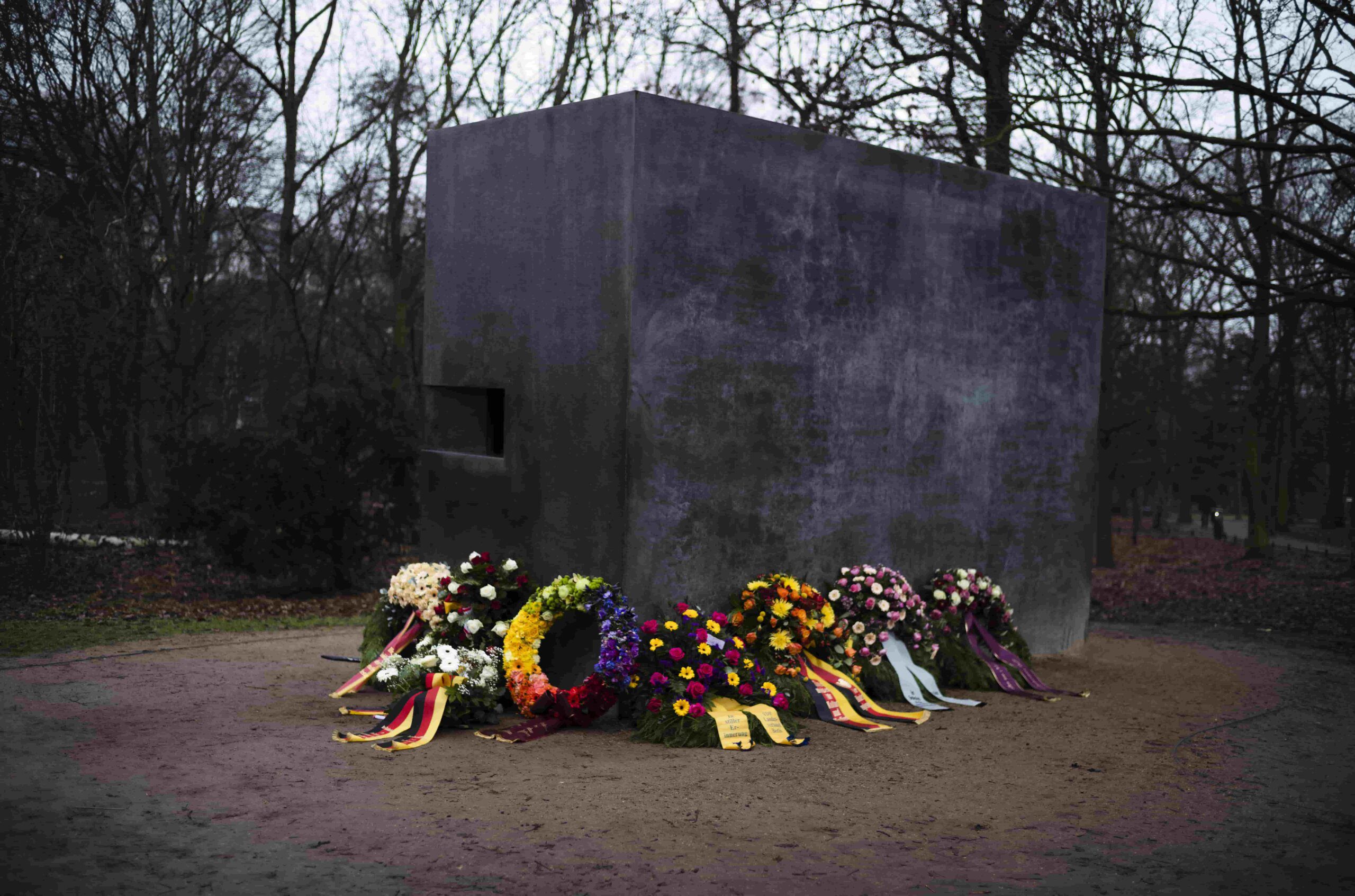After two decades of honouring Holocaust Memorial Day, Germany is centring the experiences of LGBTQ+ victims.
For the first time, the German parliament decided to spotlight the persecution and killings of LGBTQ+ people during its annual Holocaust memorial commemorations on Jan. 27, CNN reported. The move comes two decades after the first Holocaust Memorial Day was celebrated on Jan. 27, 1996, on the anniversary of the liberation of Auschwitz-Birkenau by the Red Army. Each year, a memorial ceremony honouring the more than 6 million Jews killed during the Holocaust is held in the Bundestag, the German federal parliament.
“Today’s hour of remembrances focuses on a group of victims which had to fight for a long time to achieve recognition: people who were persecuted by the National Socialists because of their sexual orientation or their gender identity,” Bäerbel Bas, the president of the Bundestag lower house, said while opening a ceremony marking Holocaust Memorial Day.
The remembrance comes after years of activists campaigning for LGBTQ+ victims of the Holocaust to be remembered—and after years of their history being sidelined or outright excluded.
Germany’s Lesbian and Gay Association rights group praised the ceremony and called it an “important symbol of recognition” of “the suffering and the dignity of the imprisoned, tortured and murdered victims.”
“Today’s hour of remembrances focuses on a group of victims which had to fight for a long time to achieve recognition: people who were persecuted by the National Socialists because of their sexual orientation or their gender identity.”
“Kisses, touching—even glances became punishable by law. Tens of thousands were accused of homosexuality,” Bas said of LGBTQ+ people’s experiences during the Holocaust. “This alone was often enough to ruin their social life and existence. More than half of these men were convicted, usually to serve long prison sentences or forced labour. In some cases, men were forced to undergo sterilization. Many were driven to suicide.”
Although homosexuality was illegal in Germany before Hitler’s rise in 1933, the country still saw a thriving gay culture. Then known as the “gay capital of the world,” Berlin’s queer nightlife and intellectual scene promoted the acceptance of LGBTQ+ people. One of the first things Nazis did after coming to power was attack queer cultural centres, including Magnus Hirschfeld’s Institute of Sexology, an academic foundation then famous for espousing the rights of queer and trans people.
By 1935, the Nazis had revised Paragraph 175 of the German penal code, which already made sodomy illegal, so that it outlawed all forms of same-sex intimacy for men. The revision also punished it more harshly: police forces detained around 100,000 gay men during the Second World War. Of these, 10–15,000 were sent to camps, where around 65 percent of them died—a disproportionate number thought to be by suicide.
Although Nazis only had explicit laws against same-sex intimacy for men, they arrested other queer people as well. Lesbians were detained for perceived “antisocial” behaviour, and deported to concentration camps. Trans people were targeted under both Paragraph 183, which outlawed “crossdressing,” as well as under Paragraph 175.
“Those who did not conform to National Socialist norms lived in fear and mistrust. The hardest hit were the many thousands of men and women who were deported to concentration camps because of their sexuality—usually under a pretext,” Bas said at the ceremony. “Many were abused for medical experiments, most perished after only a short time or they were murdered.”
Still, despite the persecution LGBTQ+ people faced during the Holocaust, their stories had been marginalized in its history. Indeed, Paragraph 175 was in effect in West Germany for two decades after the end of the Second World War, with officials arresting 100,000 gay men. It would only be removed in 1994, after the reunification of Germany. And it was only in 2017 when the German Parliament overturned the convictions of 50,000 men and offered them reparations.
Klaus Schirdewahn, a gay man who was convicted in 1964 of having a relationship with a man, implored lawmakers at the ceremony to remember the persecution of LGBTQ+ people during the Holocaust in a speech.
“I know that many people from the queer community have had experiences similar to mine—many people like me have lived in hiding for many decades and still do so,” Schirdewahn said. “I am doing all I can so that our history will not be forgotten, especially at a time when the queer community is again facing hostility worldwide and also in Germany.”


 Why you can trust Xtra
Why you can trust Xtra


